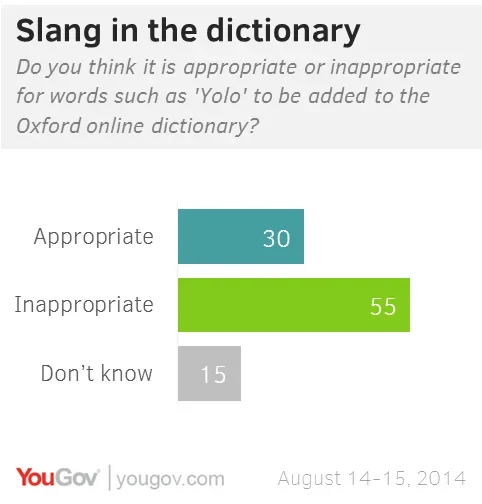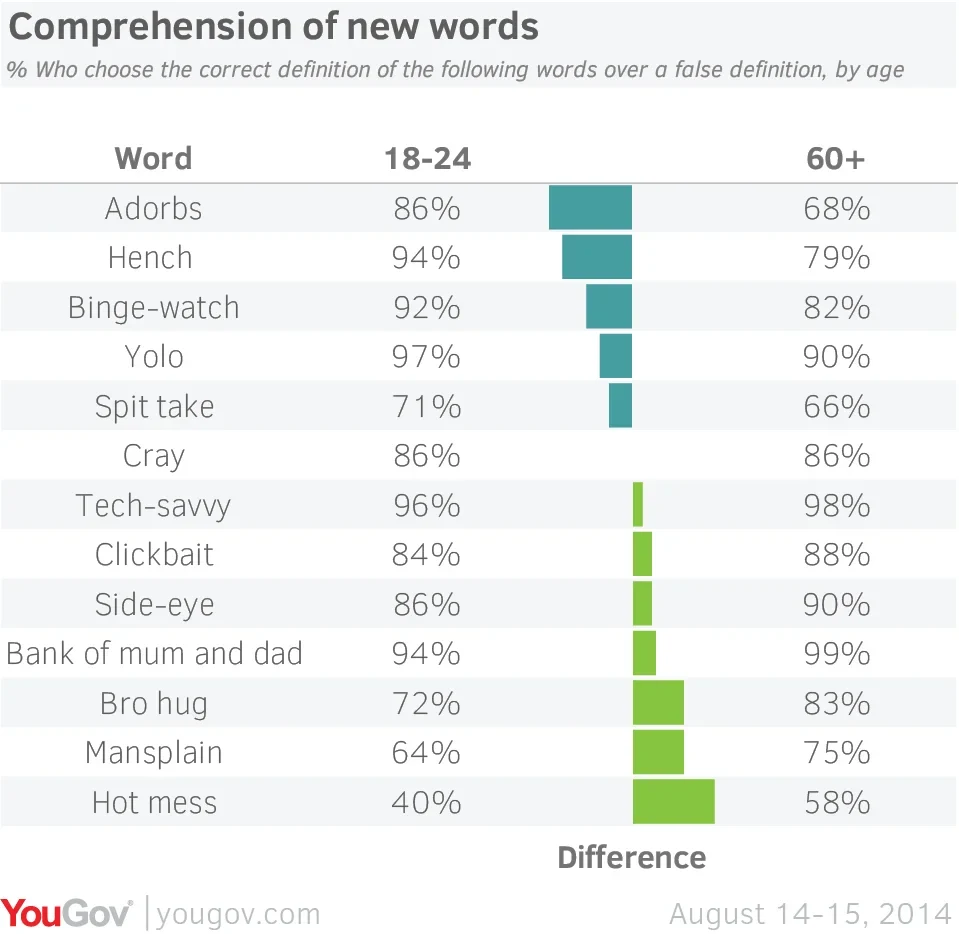While most British people have good comprehension of contemporary slang terms, they don’t think they should be added to the dictionary
A batch of new slang terms gained formal recognition this week as the Oxford online dictionary added them to their website. Words such as ‘yolo’, an acronym for ‘you only live once’, and ‘adorbs’, meaning cute or adorable, accompanied a series of technology-driven terms: ‘click-bait’, ‘tech-savvy’ and ‘binge-watch’.

Such additions go against the grain of tradition, and a new YouGov survey finds that most people (55%) think it is inappropriate for words such as these to be added to the online Oxford dictionary.
The dictionary’s purpose is to document language as it evolves however, and as much as British people may be conservative in their linguistic outlook the survey also finds that the new additions have undoubtedly entered the lexicon.
Compared to false definitions (which can be found along with the real definitions here), at least 70% of British people identify the correct definition for every one of the new terms except one: ‘hot mess’, meaning ‘a person or thing that is spectacularly unsuccessful or disordered’. Even here, however, most people identify the correct definition (52%).
But while most people have good comprehension of contemporary British language, a few words stand out as possessing greater understanding by the young. ‘Adorbs’, ‘hench’, meaning a man who is physically well-built, binge-watch and yolo are all understood by at least 7% more 18-24 year olds than over sixties.

For now, the words will not be printed in the paper Oxford English Dictionary, which is a more historical account of words. But if they continue to be used in the years to come, there is every chance they may be.









